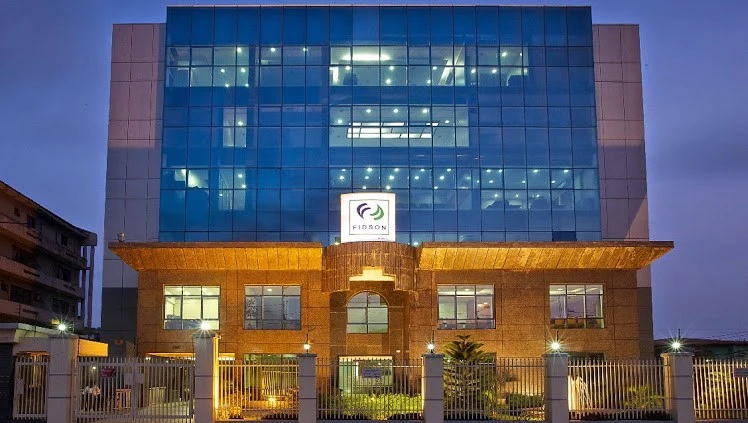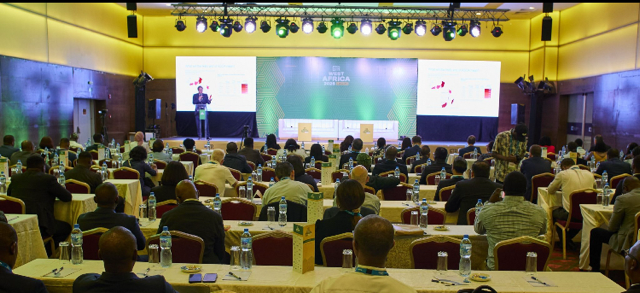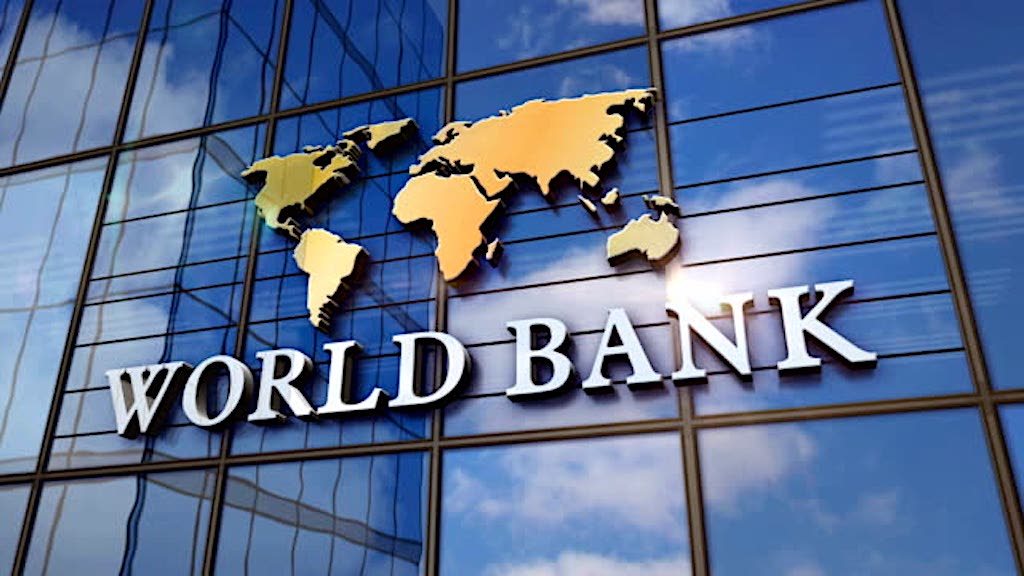•Monetary Fund reiterates support for Nigeria’s economic reforms
•Downgrades country’s 2025 growth outlook to 3%, 2.7% for 2026
•Says Nigeria’s Eurobond return reflects renewed investor confidence
•Urges vigilance as global risks pressure spreads
Obina Chima, Eromosele Abiodun and Nume Ekeghe in Washington DC
The Managing Director of the International Monetary Fund (IMF), Kristalina Georgieva, the Governor; Central Bank of Nigeria (CBN), Mr. Olayemi Cardoso and Nigeria’s Minister of Finance and Coordinating Minister of the Economy, Mr . Wale Edun, have pledged to continue to work together to scale up social spending, improve food security and promote inclusive growth in Nigeria.
Georgieva, also reiterated her support for Nigeria’s economic reforms.
The IMF boss said these at a closed-door meeting yesterday, with Cardoso, Edun, Deputy Governors of the CBN and some top officials of the Ministry of Finance, on the sidelines of the ongoing IMF/World Bank meetings in Washington DC.
“Great meeting with Nigeria @FinMinNigeria Minister Edun and @cenbank Governor Cardoso. I applauded the Nigerian government’s economic reform efforts. We strongly agreed on the need to scale up social spending, continue efforts to improve food security and promote inclusive growth,” Georgieva wrote on her official X handle.
Meanwhile, the IMF has revised Nigeria’s economic growth projections for 2025 and 2026 downwards, reflecting growing global uncertainties and sustained weaknesses in oil prices that continue to weigh heavily on Africa’s largest economy.
According to the April 2025 edition of the World Economic Outlook (WEO) released at the ongoing IMF/World Bank Spring Meetings in Washington DC, Nigeria’s growth was now expected to grow by three percent in 2025 and 2.7 percent in 2026, down from its WEO forecasts of 3.2 percent and 3 percent, respectively, issued in January.
The Fund attributed the downgrade to a mix of domestic challenges and worsening global conditions, including trade tensions, slowing demand from advanced economies, and a sharp decline in crude oil prices.
United States President Donald Trump had slammed reciprocal tariffs on all trading partners, claiming that the U.S. had suffered from unfair trading relations with most of its partners.
Specifically, the Trump administration had slammed 14 percent tariff on Nigerian goods. The measure had prompted varied responses and sparked retaliatory actions from other countries.
It had also generated shock waves across the globe, leading to turmoil in financial markets across the world.
Owing to this, the IMF in its latest WEO, noted that the downgrade of Nigeria’s growth projection marked a reversal from the estimated 3.4 percent growth Nigeria achieved in 2024, suggesting that the initial post-pandemic recovery momentum may be losing steam.
The IMF however warned that without robust policy responses, Nigeria may struggle to maintain macroeconomic stability in the face of external headwinds.
Furthermore, it noted that growth across Sub-Saharan Africa was projected to ease slightly, dipping from four percent in 2024, to 3.8 percent in 2025, before staging a modest rebound to 4.2 percent in 2026.
Speaking at press briefing on WEO, Economic Counsellor and Director Research Department, IMF, Pierre-Olivier Gourinchas, said: “Regional growth in Sub Saharan Africa improved significantly last year to 4 per cent and it will ease in 2025 and this is in line with a softer global outlook.
“And so, we are seeing the same forces at play in the region as we are seeing more globally, and a downturn in the downward revision and no projection that is of the similar magnitude at about 0.4 percentage points.”
Also, in a separate report – the Global Financial Stability Report (GFSR) – also released yesterday, the IMF noted that Nigeria’s return to the international debt market in late 2024, its first eurobond issuance since 2022, marked a notable shift in investor sentiment towards frontier economies, buoyed by macroeconomic reforms and improved credit profiles.
It stated: “For sub-Saharan Africa, growth is expected to decline slightly from 4 percent in 2024 to 3.8 per cent in 2025 and recover modestly in 2026, lifting to 4.2 percent. Among the larger economies, the growth forecast in Nigeria is revised downward by 0.2 percentage point for 2025 and 0.3 percentage point for 2026, owing to lower oil prices.”
It pointed out that inflation remains a significant hurdle for Nigeria.
Consumer prices surged by 33.2 per cent in 2024, while it projected 26.5 for 2025 and 37 per cent for 2026.
“Projections suggest a decline to 13.3 per cent in 2025 and a further slight decrease to 12.9 percent in 2026 for Sub-Saharan Africa overall,” it added.
On a more positive note, it noted that Nigeria’s current account balance was projected to show a surplus, although declining from 9.1 percent of GDP in 2024, to 6.9 per cent in 2025 and 5.2 per cent in 2026. This surplus offers some protection against external economic shocks for Nigeria.
Looking at the broader Sub-Saharan Africa region, growth was expected to decline slightly from 4.0 percent in 2024 to 3.8 percent in 2025 before a modest recovery to 4.2 percent in 2026.
The GFSR added: “Sovereign eurobond spreads for frontier economies narrowed in 2024 and at the start of 2025, with macrofinancial reforms, progress on debt restructuring, and credit rating upgrades in several countries all having contributed to this narrowing.
“Examples include progress on debt restructuring in Ethiopia and Ghana, and foreign exchange market reforms in Nigeria.
“Frontier economies were able to issue foreign currency debt at relatively modest yields, with total issuance during the first quarter of this year amounting to roughly half of total issuance in 2024.
“Nigeria returned to the Eurobond market in late 2024 for the first time since 2022 and Egypt returned in January 2025 for the first time since early 2023.”
The fund also commended Nigeria’s recent macroeconomic reforms, particularly its foreign exchange liberalisation, as contributing to improved investor sentiment. However, the Fund cautioned that growing volatility in global financial markets may pose renewed challenges for the West African economy.
Assistant Director, Monetary and Capital Markets Department, IMF, Jason Wu in response to a THISDAY question said: “ In the case of Nigeria, macroeconomics has held up, GDP growth has been fairly consistent, and inflation has been coming down, and earlier this year, we have seen Nigerian sovereign credit spreads lowering. I think the reforms that authorities have done, including the liberalisation of exchange rates, has helped in that regard.
“During a time when global financial markets is volatile and risk appetite in particular is wavering, this is when we might see increases in sovereign spreads that will challenge the external picture for Nigeria as well as other frontier economies.
“So, for example, Nigeria’s sovereign spread has increased in recent weeks as stock markets globally has declined. The other challenge, of course, is for large commodity exporters like Nigeria. You know, if trade tensions are going to lead to lower global demand for commodities, this will obviously weigh on revenue that it will receive.
“So, I think both of those developments would advise that authorities remain quite vigilant to these developments and take appropriate policies to counter.”





